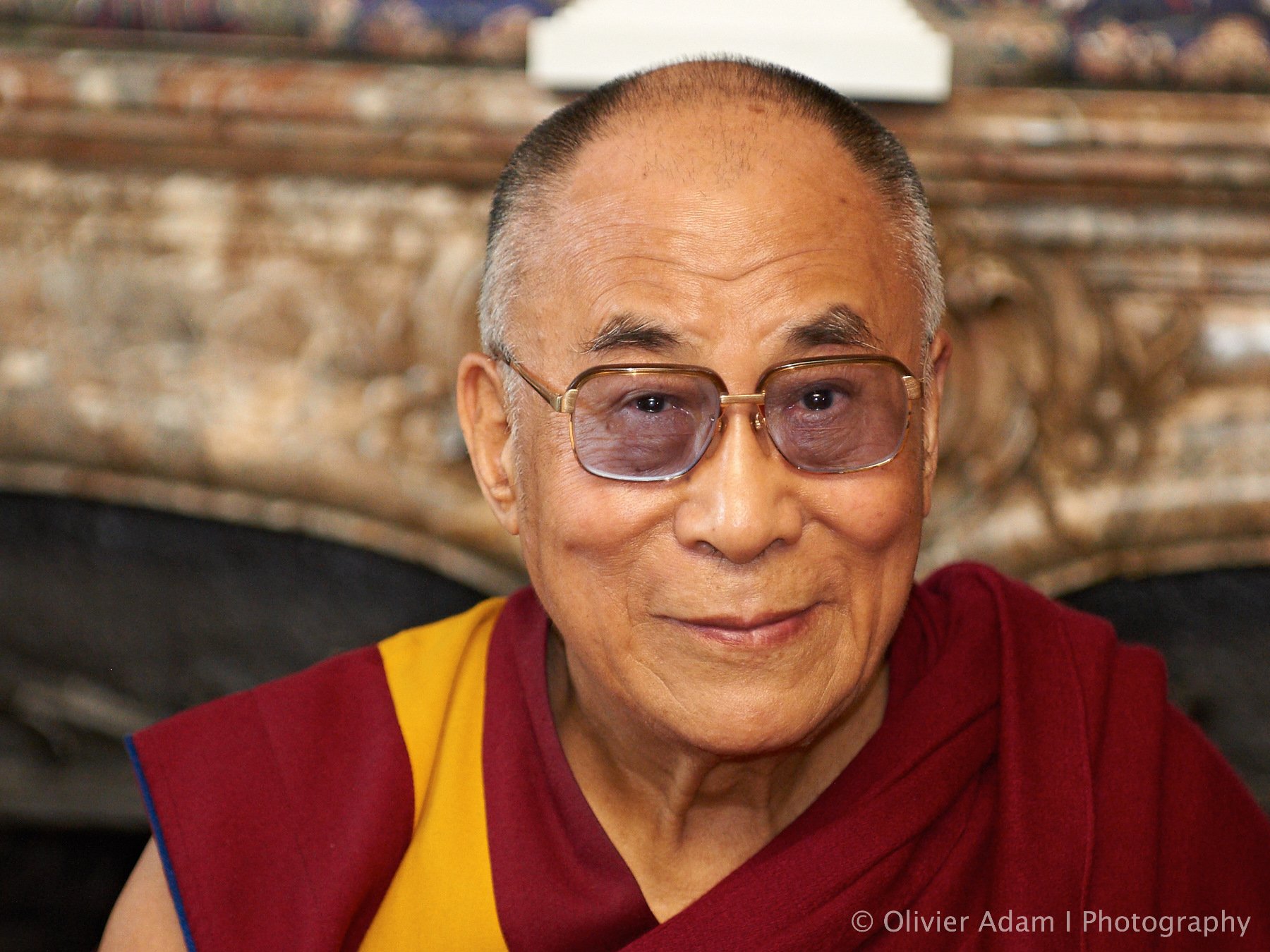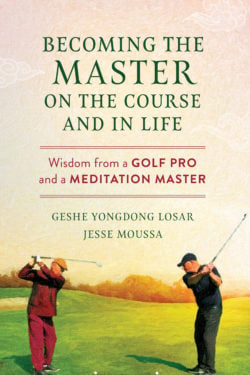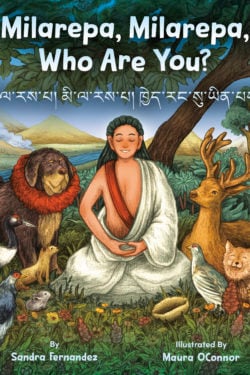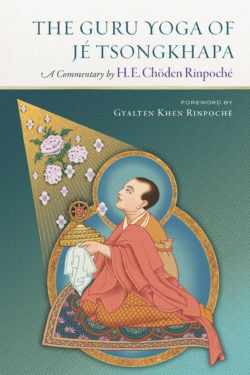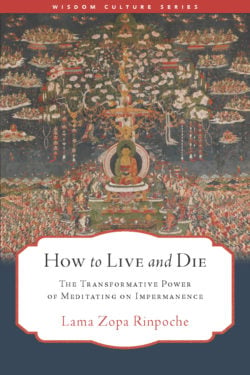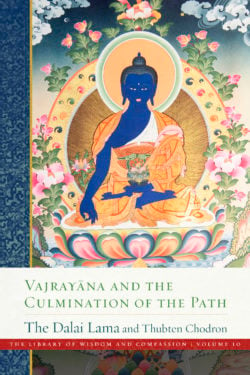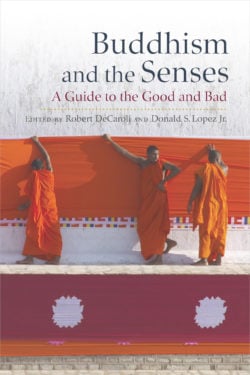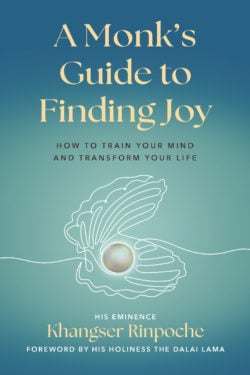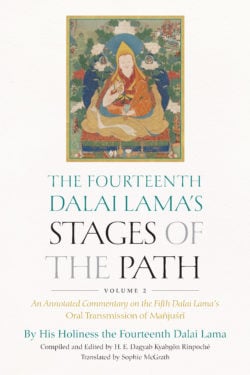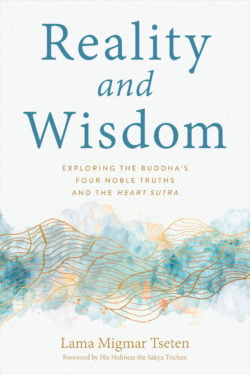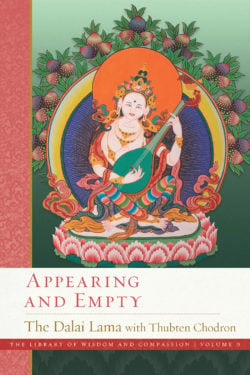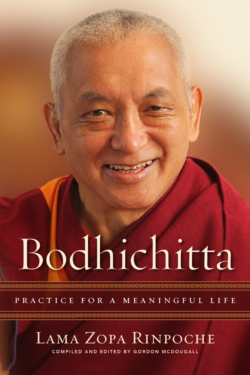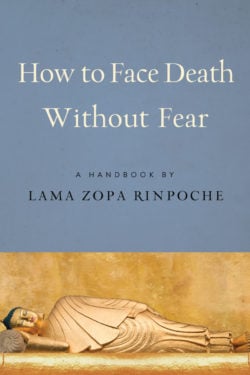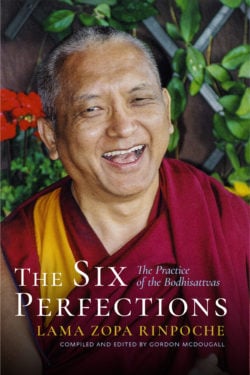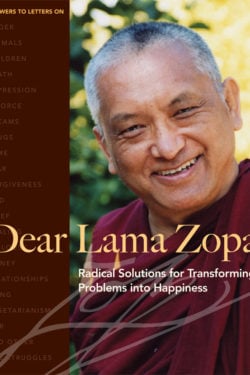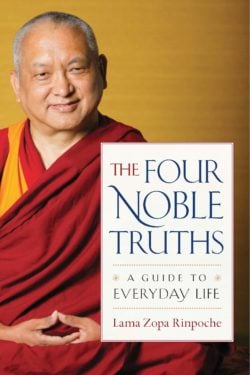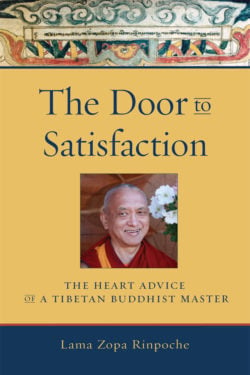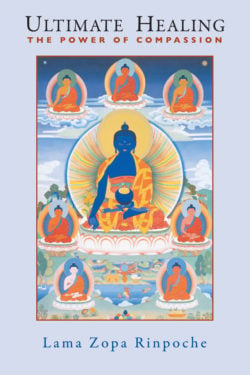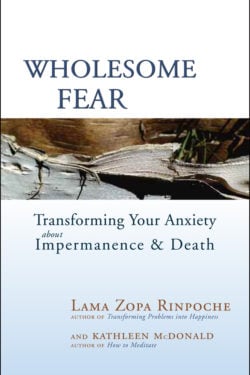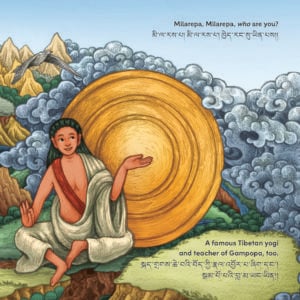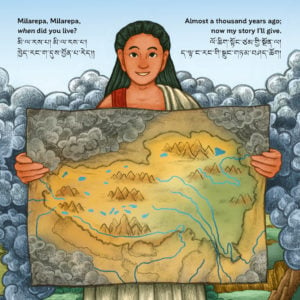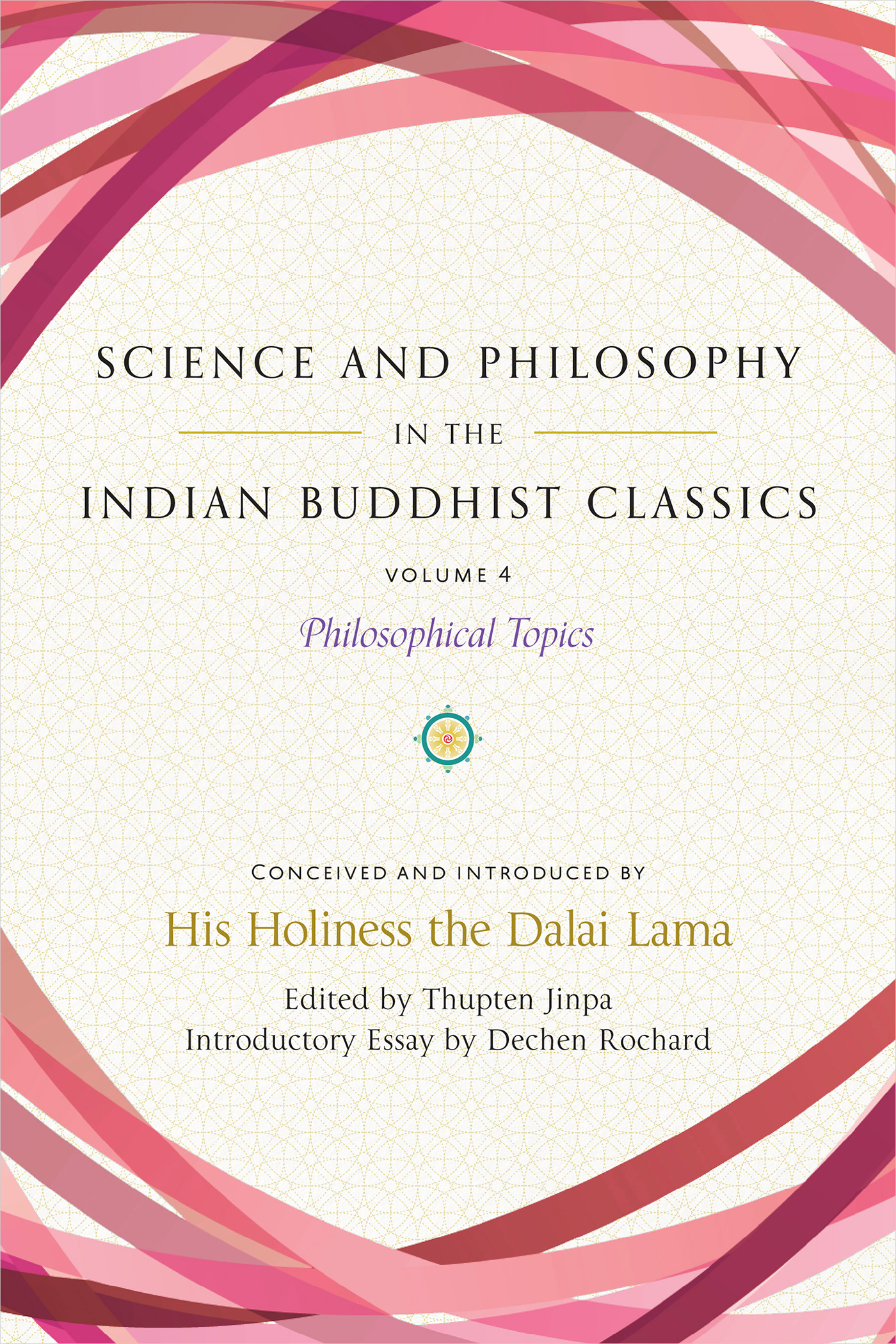
SCIENCE AND PHILOSOPHY IN THE INDIAN BUDDHIST CLASSICS, VOL. 4
This fourth and final Science and Philosophy in the Indian Buddhist Classics volume provides, through extensive passages, a window into the works of the great thinkers from the flowering of philosophy in classical India.
This is the second philosophy volume in the Science and Philosophy series. Whereas the first philosophy volume presented the views of the non-Buddhist and Buddhist schools in sequence, the present works selects specific topics for consideration, including the nature of the two truths, the analysis of self, the Yogacara explanation of reality, emptiness in the Madhyamaka tradition, a survey of logic and epistemology, and the Buddhist explanation of language and meaning. Like earlier volumes, it provides, through extensive extracts, a window into the works of the masters of the Nalanda tradition. The final section on language is particularly unique and largely crafted by Thupten Jinpa.
Explore the entire series here.
- Hardcover
- 640 pages, 6 x 9 inches
- $29.95
- ISBN 9781614297901
- eBook
- 640 pages
- $19.99
- ISBN 9781614298144
“One sign that the Buddhist tradition is alive and well, continuous with its roots and in dialogue with the modern world, is the revival of the classical Indian compendium that explores topics through selections from canonical texts. His Holiness the Dalai Lama and his Compendium Committee comprising some of contemporary Tibet’s most distinguished scholars have produced an elegant compendium of Indian Buddhist literature, interpreted by leading scholars from the Geluk tradition, and translated with exemplary clarity.”—Jay Garfield, Doris Silbert Professor in the Humanities and professor of philosophy, logic, and Buddhist studies at Smith College and Harvard Divinity School
"Philosophical Topics presents a magisterial account of the most central and perplexing questions in Buddhist philosophy as understood from the perspective of Tibetan scholasticism. Each topic is introduced in meticulous detail, accompanied by a rich selection of references to primary sources from Indian Buddhist thought. Its lucid analysis is accessible to beginning students, yet provides an account of sufficient depth to engage the experts. This is a book no serious student of Buddhist philosophy will want to be without.”—Jan Westerhoff, professor of Buddhist philosophy, University of Oxford
“Science and Philosophy in the Indian Buddhist Classics is a remarkable achievement. This crowning volume is an encyclopedic survey that balances the clarity of an overview with a specificity that makes it engaging. It is a treasure.” —Douglas Duckworth, professor of religion, Temple University
Discover More
Becoming the Master on the Course and In Life
Now available! Save 20% with code BTM20 until February 3.
On the course or in your mind—golf is a game of balance. Here, timeless Buddhist teachings meet golf-pro expertise to elevate every part of your game.
Ever feel like you’ve invested in the best equipment, taken countless lessons, and put in endless practice—yet your game just isn’t improving? Or that your shots look flawless on the range but fall apart the moment you’re in a real match? Maybe you’ve walked off the course frustrated—with yourself, your swing, or even the game itself—forgetting that golf is actually meant to be enjoyable.
Enter a Buddhist master from Tibet, Geshe YongDong Losar, and a golf pro, Jesse Moussa. Drawing on decades of golf experience and centuries of Buddhist wisdom, they team up to reveal the mental side of the sport: how to eliminate distraction, maintain focus and equilibrium, and let your skills grow naturally—like the grass.
This book is your opportunity to learn from two masters how to meet the game with presence, balance, and joy—and to step up to the ball with confidence every time.
Learn about Geshe YongDong’s previous book Calm Breath, Calm Mind.
Milarepa, Milarepa, Who Are You?
A charming, beautifully illustrated, bilingual book about one of Tibet’s greatest spiritual teachers—sure to inspire awareness, compassion, and wisdom in children and adults alike that includes an online guide for parents and teachers.
Milarepa is celebrated throughout the Himalayas as one of the most inspiring Buddhist figures from Tibetan history. This beautifully illustrated telling of his life and teachings, with Tibetan translation, lets children explore his extraordinary story. Milarepa went through an incredible transformation, overcoming suffering and his own misdeeds with the help of a wise teacher to become a great spiritual teacher in his own right.
Through the story and teachings of Milarepa, we can see that it is always possible to let our inner goodness shine, no matter what we’ve done in the past. Every moment creates a new opportunity to settle the mind and open the heart. Milarepa’s resilience, fearlessness, mental clarity, and compassion have been beacons of inspiration for a thousand years and resonate as deeply today as they have through the centuries.
To honor Milarepa’s spontaneous songs—classically known as dohas in Sanskrit, which communicated his experiences to others—this book is written in poetic form. It explores the wisdom of his teachings in the form of a rhythmic, call-and-response duet.
Click here to receive an online guide for parents and teachers that further expands on the themes of the book by providing lesson ideas, meditation activities, and guidance for learning about language, history, and art.
The Guru Yoga of Jé Tsongkhapa
Explore the guru yoga practice of Jé Tsongkhapa with a legendary meditation master.
The Hundreds of Deities of Tuṣita is an inspiring and well-loved guru yoga practice that originated from Jé Tsongkhapa himself and was disseminated by the First Dalai Lama. In this book, Chöden Rinpoché—a celebrated scholar who was chosen as a debate partner for His Holiness the Dalai Lama, as well as an accomplished yogi who spent nineteen years in solitary retreat—offers two different commentaries to guide the reader’s understanding.
Rinpoché’s first commentary is based on the tantric oral tradition as presented by the great lama and scholar Pabongkha Dechen Nyingpo in his own inspired commentary on The Hundreds of Deities of Tuṣita, called A Treasury of Precious Jewels, which is presented here in full. Rinpoché adds clarifying instruction to Jé Pabongkha’s work, bringing out the deeper meaning of the text and revealing how ordinary practitioners may understand and apply Pabongkha’s instruction. The second commentary from Rinpoché is a condensed commentary based on the sūtra tradition. Thus, the reader is treated to two different perspectives of the guru yoga practice of Jé Tsongkhapa.
Previously published as Opening the Door of Blessings, this edition has been revised and updated, and is an essential edition to any practitioner’s library.
How to Live and Die
What death is, how we die, what minds we need at death and what happens after death—only by knowing about death and rebirth can we actually fully understand what life is and so learn how to live fully.
—Lama Zopa Rinpoche
There is arguably no truth more foundational to Buddhism than this: everything is impermanent. We can see this in the world all around us; old systems break down, relationships change. Death comes for those we love and, inevitably, for us.
In this book, the late, beloved teacher Lama Zopa Rinpoche walks us through the traditional, revelatory practices of meditating on the fact of impermanence and even—especially—on death itself. Rather than shy away from this reality, we look straight at it, and thus we learn not only how to not fear death, but how to live.
Vajrayāna and the Culmination of the Path
The final volume of the Library of Wisdom and Compassion by His Holiness the Dalai Lama takes us to the uncommon practices and realizations of Vajrayāna and the culmination of the path to the full awakening of a buddha.
His Holiness the Dalai Lama skillfully illuminates the unique qualities and complexities of Vajrayāna, as practiced in Tibet, and clarifies the method to eradicate the subtlest obscurations preventing the full awakening of a buddha. Speaking to newcomers and advanced students alike, he explains the similarities and differences of the Sūtra and Tantra paths. Having gathered many of the doubts and difficult points concerning the tantric path, he clarifies the purpose of receiving proper empowerment by qualified gurus and the ethical restraints and commitments required to enter the path of secret mantra. The paths and stages of the four tantric classes are explained, as are the generation-stage and completion-stage practices of Highest Yoga Tantra. You are introduced to the practices of clear appearance and divine identity common to all tantric sādhanas, as well as the unique practices of illusory body and actual clear light that overcome the subtlest defilements on the mind and eliminate all obscurations quickly.
The understanding of emptiness in Sūtra and Tantra is the same, but the consciousness perceiving emptiness differs. In Highest Yoga Tantra that consciousness is great bliss, which arises from knowing the methods to manipulate the channels, winds, and drops of the subtle body. In short, in Vajrayāna and the Culmination of the Path the Dalai Lama sets out the path that leads to blissful awakening and enables us to be of great benefit to all sentient beings.
Learn more about the Library of Wisdom and Compassion series.
Buddhism and The Senses
Across Buddhist traditions, the five senses—sight, sound, smell, taste, and touch—are perceived both positively and negatively. Share eminent scholars’ fascination and deep insight into what makes a sensuous experience good or bad.
Following the exhibition Encountering the Buddha: Art and Practice across Asia at the National Museum of Asian art, ten eminent scholars present their insights into Buddhism’s fascinating relation with the five senses (sight, sound, smell, taste, and touch), which careens between delight and disgust, rarely finding a middle way. While much of Buddhist literature is devoted to overcoming the attachment that dooms us to rebirth in samsara, primarily by deprecating sense experience and showing that whatever brings us sensual pleasure leads only to all manner of physical and mental pain, in texts such as the Lotus Sutra, sensory powers do not offer sensory pleasure but rather knowledge, clear observation, and ability to preach the Dharma. Considering such religiously and historically contingent ambiguity, this volume presents each of the five senses in two instantiations, the good and the bad, opening up the discourse on the senses across Buddhist traditions.
Just as the museum departed from tradition to incorporate sensory experiences into the exhibition, this volume is a new direction in scholarship to humanize Buddhist studies by foregrounding sensory experience and practice, inviting the reader to think about the senses in a focused manner and shifting our understanding of Buddhism from the conceptual to the material or practical, from the idealized to the human, from the abstract to the grounded, from the mind to the body.
Includes essays by Bryan J. Cuevas, Debra Diamond, D. Max Moerman, Reiko Ohnuma, James Robson, Melody Rod-ari, Kurtis R. Schaeffer, John Strong, and Lina Verchery.
A Monk’s Guide to Finding Joy
A profound and practical guide to uncovering your own wise mind and kind heart.
We all want to find happiness. But how do we go about it? In this easygoing and clear-sighted guide, celebrated Buddhist meditation and philosophy master His Eminence Khangser Rinpoche provides us with down-to-earth advice on how to train our minds and find our own innate wisdom and kindness along the way. He helps us see the profound insight that is open to us all, and how it can awaken us to the truth of the way things are. This insight into the truth, and the practices that help you cultivate this awareness, transform suffering into wisdom and compassion—and ultimately joy.
A Monk’s Guide to Finding Joy brings the ancient Tibetan mind-training tradition into our twenty-first-century lives. Through stories, real-life examples, reflections, and meditation practices—all told with warmth and humor—H.E. Khangser Rinpoche shows us how we can transform the suffering of our life into happiness. When we train the mind from within the context of our difficult emotions, we can find true joy, just as the oyster transforms sand into a pearl.
The Fourteenth Dalai Lama’s Stages of the Path, Volume 2
Central to Buddhism is knowing our own minds. Until we do, we are driven by unconscious, often destructive desire and aversion. We couldn’t have a better guide for inner transformation than the Dalai Lama.
The Fourteenth Dalai Lama’s Stages of the Path, Volume 2: An Annotated Commentary on the Fifth Dalai Lama’s Words of Mañjuśrī is the second volume of the Dalai Lama’s outline of Buddhist theory and practice. Having introduced Buddhist ideas in the context of modern society in volume 1, the Dalai Lama turns here to a traditional presentation of the complete path to enlightenment, from developing faith in the Dharma to attaining the highest wisdom. This book, compiled by the revered Tibetan lama Dagyab Rinpoché, comments on the Fifth Dalai Lama’s stages of the path titled Oral Transmission of Mañjuśrī. The volume will appeal to all readers interested in the Dalai Lama’s works, both those new to Buddhism and those looking to deepen their understanding of the Tibetan presentation of the Buddhist path.
Click here to read about His Holiness the Fourteenth Dalai Lama’s achievements.
The Fourteenth Dalai Lama’s Stages of the Path: Volume 1: Guidance for Modern Practitioners is available here.
Reality and Wisdom
Written in a warm and accessible style by one of today’s most respected Tibetan Buddhist masters, Reality and Wisdom leads the reader on a journey of discovery beginning with the very first teachings of the Buddha and into the profound experience of emptiness.
The first section of the book explores the bedrock Buddhist teachings of the four noble truths—insights into freedom from suffering from craving—which underpin all schools of Buddhism. Lama Migmar presents and explores these foundational Buddhist truths with humor and insight, explaining how, from a Mahayana Buddhist perspective, these truths serve as crucial supports for cultivating the transformative wisdom of emptiness.
In the book’s second half, Lama Migmar illuminates the terse and enigmatic lines of the Heart Sutra, perhaps the most studied and revered of all Mahayana Buddhist scriptures. The Heart Sutra presents the reader with a vision of reality as it is perceived by a buddha, a vision underpinned by and infused with the radical flexibility and possibility of emptiness and the engagement and responsiveness of profound compassion.
The clarity, warmth, and vibrancy of Lama Migmar’s writing combined with the comprehensiveness and detail of his presentations of key Buddhist teachings make this book a valuable resource for a range of readers, from beginners to more advanced practitioners seeking to deepen their practice.
Appearing and Empty
In Appearing and Empty the Dalai Lama skillfully reveals the Prāsaṅgikas’ view of the ultimate nature of reality so that we will gain the correct view of emptiness, the selflessness of both persons and phenomena, and have the means to eliminate our own and others’ duḥkha.
In this last of three volumes on emptiness, the Dalai Lama takes us through the Sautrāntika, Yogācāra, and Svātantrika views on the ultimate nature of reality and the Prāsaṅgikas’ thorough responses to these, so that we gain the correct view of emptiness—the selflessness of both persons and phenomena. This view entails negating inherent existence while also being able to establish conventional existence: emptiness does not mean nothingness. We then learn how to meditate on the correct view by cultivating pristine wisdom that is the union of serenity and insight as taught in the Pāli, Chinese, and Tibetan traditions. Such meditation, when combined with the altruistic intention of bodhicitta, leads to the complete eradication of all defilements that obscure our minds. This volume also introduces us to the tathāgatagarbha—the buddha essence—and how it is understood in both Tibet and China. Is it permanent? Does everyone have it? In addition, the discussion of sudden and gradual awakening in Zen (Chan) Buddhism and in Tibetan Buddhism is fascinating.
Learn more about the Library of Wisdom and Compassion series.
Bodhichitta
An accessible, inspiring book on one of the most important topics in Tibetan Buddhism, written by one of its renowned masters who has an international following of thousands.
Bodhichitta is a Sanskrit word meaning “the mind of enlightenment” or “the awakening mind”—the mind that wishes to achieve enlightenment in order to lead all other beings into that same state. It is the attitude of the bodhisattva, of the person who makes the compassionate vow to save others from suffering. In this book, the renowned teacher Lama Zopa Rinpoche shows us how to achieve it.
First, Lama Zopa gives a clear and comprehensive explanation of bodhichitta, its benefits, and its importance to the path. Then, he walks us through the two main methods for achieving bodhichitta: the seven points of cause and effect, and equalizing and exchanging self and others. Finally, the book closes with meditation instructions to guide and strengthen our practice.
Readers will find Bodhichitta to be a comprehensive guide to this core Buddhist principle, one rich in both accessible philosophical explanation and concrete advice for practitioners.
How to Face Death without Fear
“Helping our loved ones at the time of death is the best service we can offer them, our greatest gift. Why? Because death is the most important time of life: it’s at death that the next rebirth is determined.”—Lama Zopa Rinpoche
For years Lama Zopa Rinpoche envisioned a practical book to inform students of how to help loved ones have a beneficial death. How to Face Death without Fear has been compiled from years of Rinpoche’s teachings and has been lovingly edited by Venerable Robina Courtin.
Rinpoche provides detailed advice on how to help your loved ones prepare for the end of their life with courage, acceptance, and a mind free of fear. With great care, he explains what to do in the months, weeks, and days before death, how to handle the moment itself, what to do after the breath has stopped, and finally, what to do after the mind has left the body. Rinpoche provides the mantras, prayers, and meditations appropriate for each stage. This new edition of Rinpoche’s modern classic How to Enjoy Death makes it easy for the reader to find the right practice at the right time.
This handbook is an essential reference for Tibetan Buddhist caregivers, hospice workers, and chaplains. But, as Rinpoche points out, it is not only for people who work with the dying; it is education we all need.
You’ll find solace in this wealth of advice, and you’ll also gain the confidence to ensure that your loved one’s death—and your own—will be joyful and meaningful.
The Six Perfections
The six perfections are the actions of the bodhisattvas—holy beings who have transcended selfless concerns. But they’re also skills we can and should develop right now, in our messy, ordinary lives.
In this clear, comprehensive guide to the backbone of Mahayana Buddhist practice, Lama Zopa Rinpoche walks us through each of the six perfections:
- charity
- morality
- patience
- perseverance
- concentration
- wisdom
As he carefully describes each perfection, he not only reveals the depth of its meaning and how it intertwines with each other perfection, but he also explains how to practice it fully in our everyday lives—offering concrete ways for us to be more generous, more patient, more wise. With the guidance he gives us, we can progress in our practice of the perfections until we, like the bodhisattvas, learn to cherish others above ourselves.
“The perfections are the practices of bodhisattvas, holy beings who have completely renounced the self; they have transcended selfish concerns and cherish only others. Each perfection is perfect, flawless. Each arises from bodhichitta and is supported by the other perfections, including the wisdom of emptiness. Because of that, a bodhisattva generates infinite merit every moment, whether outwardly engaged in working for others or not. A bodhisattva’s bodhichitta never stops.”
—Lama Zopa Rinpoche
Dear Lama Zopa
Unconventional wisdom, affirmation, and advice from one of Tibetan Buddhism’s most influential living teachers.
Lama Zopa Rinpoche was a master at explaining Buddhism’s radical but effective methods for transforming suffering into happiness, which have been practiced and taught by Tibetans for a thousand years. It’s a challenging way to think—how can it be that the things that cause us pain are actually blessings?
In Dear Lama Zopa, Rinpoche applies that challenge to our everyday, real-life problems—from the littlest to the biggest. Every year he received thousands of letters from people around the world asking for advice—on coping with everything from addiction, grief, and depression, to war, terrorism, and death.
In his detailed and deeply caring responses to these letters, reproduced here, Rinpoche shows again and again that the best method for solving our problems is to radically change the way we perceive them; that by emphasizing their inner causes we can even change the resulting outer circumstances.
Even people familiar with notions like karma and reincarnation, which imply that we are the creators of our own experiences, may find the advice difficult. Yet uncountable thousands of people of all backgrounds have put Rinpoche’s loving guidance into practice—and have seen real and positive change in their lives. Now, with Dear Lama Zopa, you can see for yourself…
The Four Noble Truths
The Four Noble Truths begins with an excellent elucidation of the nature of the mind and its role in creating the happiness we all seek. Lama Zopa Rinpoche then turns to an in-depth analysis of the four truths. The first truth is that we are suffering because we are in cyclic existence, or samsara, the beginningless cycle of death and rebirth characterized by three types of suffering: the suffering of suffering, the suffering of change, and pervasive compounding suffering. These are not inflicted on us without cause, nor do they come from others. The second truth tells us that there is a cause for all this suffering—the delusions and karma that arise from the ignorance that fails to see the way in which things exist. Because there is a cause and because we can develop the wisdom realizing emptiness, the antidote to ignorance, we are able to actualize the third truth, the cessation of suffering. How we do that is explained in the fourth truth, the path to the cessation of suffering.
The Door to Satisfaction
In Door to Satisfaction Lama Zopa Rinpoche reveals a text he discovered in a cave in the Himalayas that captures the essential point of Buddhist training. Rinpoche says, “Only when I read this text did I come to know what the practice of Dharma really means.”
Without proper motivation, it does not matter what we do. Whether reciting prayers, meditating, or enduring great hardships, if our actions are devoid of good intention they will not become Dharma practice. Proper motivation transcends our ordinary, ephemeral desires and ultimately seeks the happiness of all living beings. “In your life,” says Rinpoche, “there is nothing to do other than to work for others, to cherish others. There is nothing more important in your life than this.”
This powerful, simple message applies to Buddhists and non-Buddhists alike—we all have the power to unlock our greatest potential. Open this book and open the door to a timeless path leading to wisdom and joy.
Ultimate Healing
We experience illness on a physical level, but in order to be healed, we must understand where true healing begins: within our hearts and minds. In Ultimate Healing, internationally renowned meditation master Lama Zopa Rinpoche helps us to recognize the root of illness and gives us the tools to create our future happiness. Beginning with stories of people who have recovered from disease through meditation, Rinpoche addresses the central role played by karma and by the mental habit of “labeling” in causing illness, and shows how meditation and other thought techniques for developing compassion and insight can eliminate the ultimate cause of all disease.
Ultimate Healing shows us that by transforming our minds, especially through the development of compassion, we can eliminate the ultimate cause of all disease. In addition to relating stories of people who have recovered from disease through meditation, Lama Zopa presents practical healing meditations, including white-light healing, compassion meditation, “taking and giving”, and techniques to cure depression.
Wholesome Fear
With the right perspective, our anxiety around sickness, old age, and death can be a “wholesome fear”—a fear with a positive quality that ultimately enriches and nourishes our lives. Lama Zopa Rinpoche shows us how we can use our anxiety as a high-octane fuel to really live what’s most important. Alongside Rinpoche’s teachings, Kathleen McDonald presents meditations that lead to peace, compassion, and joy for ourselves and others. Approaching our physical realities in this way will help us to live well and, when the time comes as it inevitably will, to die well too. It’s never too early to start making this most important of efforts—and, fortunately, it is never too late. An essential guide for anyone confronting the challenges of death and dying, Wholesome Fear serves as a reminder of the gift and truth of impermanence.

